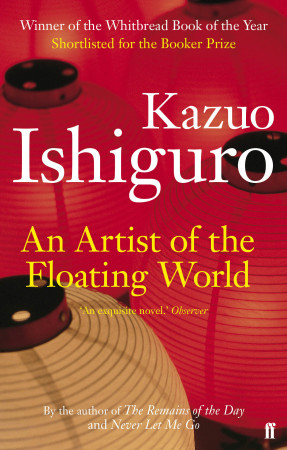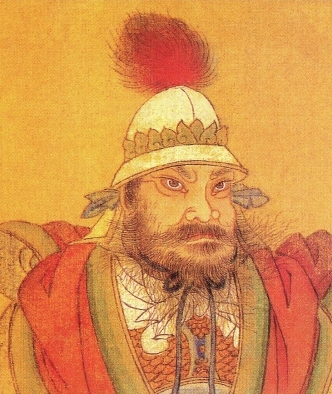Qur’an Definition World History
The Qur’an is one of the most important religious texts in the world. It is the central religious text of Islam and is believed by Muslims to be the word of God revealed to the Prophet Muhammad. It is composed of 114 chapters, known as surahs, and contains a wealth of information about the history, culture, and beliefs of the Islamic world. It covers a wide range of topics, including spiritual teachings, laws, and social principles. It is an essential source of information on world history, and its influence has spread far beyond the Middle East and North Africa to the rest of the world. It is an invaluable resource for those looking to gain a better understanding of the history and culture of the Islamic world and its many contributions to world history.
Overview of the Qur’an
The Qur’an is the most sacred source of guidance in Islam, revered as the literal word of God revealed to the Prophet Muhammad over 1400 years ago. It is the central religious text of the world’s 1.8 billion Muslims, and the source of much of the religion’s laws, beliefs, and values. It contains 114 chapters, each divided into verses, and is divided into two main sections: Meccan and Medinan. The Meccan Surahs, revealed in the Prophet’s early life in Mecca, focus on the fundamentals of faith, while the Medinan Surahs, revealed in Medina, focus on the socio-political and legal aspects of Islam. The Qur’an is also known for its unique poetic style, which has inspired centuries of Islamic literature and art. It is read in its entirety during the holy month of Ramadan, and is an important source of spiritual healing and guidance for many Muslims.
Definition of the Qur’an
The Qur’an is a religious text that is regarded as the central religious text of Islam. It was revealed to the Prophet Muhammad over a period of 23 years and is considered to be the verbatim word of Allah. It contains 114 surahs (chapters) and is divided into 30 parts, with each surah containing verses (ayat). The Qur’an is composed of the teachings of Allah, which provide guidance on how to live a good life. It is the primary source of Islamic law and principles, and serves as a guide for worship and prayer.
The Qur’an is the foundation for many aspects of Islamic life and culture. Its teachings are used to inform the practice of religious rituals, the interpretation of Islamic law, and the development of Islamic ethics and morality. The Qur’an also serves as an important source of history, providing information on the life of the Prophet Muhammad, the early Islamic community, and other important events in Islamic history.
The Qur’an is an essential part of Islamic tradition and culture, and its teachings are integral to the daily lives of Muslims. It is a source of inspiration and guidance for Muslims and provides a framework for the understanding of Islamic faith and its core beliefs. The Qur’an is a timeless source of knowledge and wisdom, and its relevance to the modern world is undeniable.
Historical Significance of the Qur’an
The Qur’an is an incredibly important book in the history of the world. It has been a source of guidance to billions of people around the world for centuries. The Qur’an is a collection of divine revelations that were given to the Prophet Muhammad (PBUH) by Allah over a period of 23 years. It is believed to be the word of God and has been the basis of Islamic law and culture since its inception.
The Qur’an is a guide to human life and contains guidance on how to live a successful and fulfilling life. It offers moral and spiritual advice, as well as instructions on how to perform rituals such as prayers and fasting. It also provides an understanding of the nature of God and his relationship with humanity.
The Qur’an is a record of history and contains references to many historical events that took place during the lifetime of the Prophet Muhammad (PBUH). It is also a source of knowledge and wisdom, providing lessons on how to live a moral and righteous life and how to deal with difficult situations.
The Qur’an has been a source of strength and inspiration to Muslims all over the world and has served as a fundamental basis for Islamic culture and law. It is a source of guidance and wisdom to people of all faiths and beliefs and provides a comprehensive view on the nature of God and his relationship with humanity. It is a timeless book that continues to shape and guide the lives of millions of people around the world.

Impact of the Qur’an on World History
The Holy Qur’an is a timeless scripture which has had an immense impact on world history and continues to influence the way we live today. The Qur’an is the central religious text of Islam, and it has been studied and discussed by Muslims across the globe for centuries. The Qur’an has had a profound influence on many aspects of world history, from politics and law to art and culture.
The Qur’an established the basic principles of Islamic law, which still govern many aspects of life in the Muslim world. Its teachings have shaped the way Muslims view justice, mercy, and charity, and much of the modern legal system in many countries is based on its teachings. The Qur’an also played a key role in the development of Islamic science and technology, and its teachings have inspired countless inventors, scientists, and entrepreneurs.
The Qur’an has also been an important source of inspiration for artists, writers, and musicians. Its poetic verses have been used to create beautiful works of art, and its teachings have inspired many great works of literature. The Qur’an has also been the source of numerous popular songs, and its teachings have been interpreted in a variety of musical styles.
The Qur’an has had a significant impact on world history, and its teachings continue to influence the lives of billions of people today. Its teachings are timeless, and its message is as relevant today as it was when it was first revealed. Its teachings have shaped the way people think and act, and its influence will continue to be felt in the years to come.
Role of the Qur’an in Shaping Beliefs and Practices
The Qur’an is the holy book of Islam and it holds a special place in the hearts and minds of Muslims all over the world. The Qur’an has had a significant influence on Muslim beliefs and practices. It has shaped the way people interpret the world around them and how they practice their faith. The Qur’an has been used to construct the framework for Islamic law, known as the Sharia, which is followed by millions of Muslims today. It is also seen as a source of guidance and morality in everyday life, with many Muslims learning its verses and reciting them on a daily basis. The Qur’an is also seen as a source of comfort and solace during difficult times and it is believed to be a source of wisdom and knowledge. The Qur’an has been a source of inspiration for many Muslims throughout history and continues to be an important part of the Islamic faith. The Qur’an provides a unique perspective on the world and its teachings have shaped the beliefs and practices of Muslims for centuries.
Contemporary Relevance of the Qur’an
The Qur’an is a timeless source of guidance and wisdom that has been passed down from generation to generation. Its teachings are just as relevant today as they were in the time of Prophet Muhammad (peace be upon him). It is the very foundation of the Islamic faith and provides a unique insight into the world’s history and culture. It is a source of knowledge, guidance, and inspiration for all Muslims around the world.
The Qur’an is a living document that speaks to us today in ways that are just as powerful as when it was first revealed. It is a comprehensive guide to all aspects of life, including personal spirituality, relationships, social justice, and more. It provides timeless advice and wisdom on how to live a life of peace, justice, and harmony. Additionally, the Qur’an is a source of strength and comfort in times of turmoil and difficulty.
The Qur’an is a cornerstone of Islamic faith and culture and its relevance continues to be seen in the modern world. It is a source of guidance and inspiration for Muslims as they navigate their faith in an ever-changing world. Its teachings are just as pertinent today as they were in the time of Prophet Muhammad (peace be upon him). It is a living document that speaks to us today in ways that are just as powerful as when it was first revealed.
FAQs About the Qur’an Definition World History
Q1: What is the definition of the Qur’an?
A1: The Qur’an is the central sacred text of Islam, believed to be the literal word of God as revealed to the Prophet Muhammad. It is composed of 114 chapters, or surahs, that contain the principles and teachings of Islam.
Q2: How does the Qur’an relate to world history?
A2: The Qur’an has had an immense influence on world history, particularly in the Middle East and the Islamic world. Its teachings have shaped and guided Islamic culture, philosophy, and law for centuries.
Q3: How can I learn more about the Qur’an and its influence on world history?
A3: There are many excellent books and online resources available to help you learn more about the Qur’an and its impact on the world. It is also recommended to consult with knowledgeable Islamic scholars on the subject.
Conclusion
In conclusion, the Qur’an is an important source for understanding world history. It provides a unique perspective on the various events and cultures that have shaped our world. It also serves as a source of inspiration and guidance for millions of Muslims around the world. The Qur’an helps us to better understand the complexity and beauty of the world around us, as well as the importance of our own spiritual journey. Ultimately, the Qur’an is a powerful reminder of the importance of faith, justice, and peace in all aspects of our lives.




